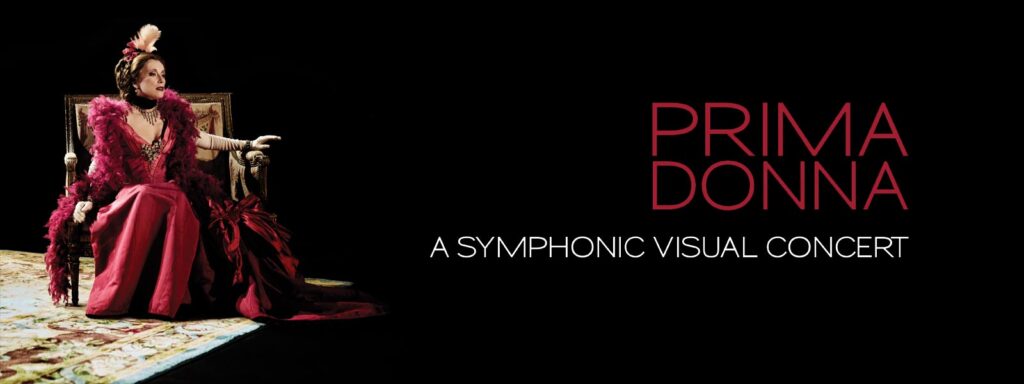
For more information and booking, please contact breakersmanagementcontact@gmail.com
Composed by Rufus Wainwright
Libretto by Rufus Wainwright and Bernadette ColomineACT 1
Following a night of endless nightmares, Madame Saint Laurent is awake unusually early and surprisingly keen to spend time with her new maid, Marie. Marie has also had a sleepless night due to her tempestuous husband, the confession of which frees Madame to share her own terrors of returning to the stage after an unexplained six-year hiatus.
Madame tells Marie of the stage role of her life, Aliénor d’Aquitaine, Queen of both England and France, who created love and romance. These two women, from opposite walks of life, find solace in each other at a breaking point in both their lives.
Philippe, Madame’s butler and confidante, enters with his trusted companion, François. Philippe is in his usual bad mood, having spent the whole morning finalizing arrangements for that afternoon’s interview with Paris’ top journalist, André Le Tourneur, a rendezvous that Madame has, of course, forgotten.
Philippe and François rush to prepare the apartment for the journalist’s imminent arrival. As they do, Philippe once again tells François of the golden days when Madame was the Queen of Paris… until the opening night of Aliénor six years ago, that one triumphant and disastrous performance after which Madame never sang again. Lost in reverie, nostalgia, and regret, Philippe swears that he and Madame will not make the same mistakes this time.
The doorbell rings and the journalist arrives. Philippe puts on a strong show with the help of François and Marie who all welcome André into the glamorous world of Régine Saint Laurent, who makes her grand entrance.
The interview turns out to be more than Madame or André had imagined. Madame sees in him a ghost from her past that begins to reveal the true story of what happened that fatal night six years ago. André sees more than the legend he has adored since his university days. Romance blossoms in the air and, within moments, they are around the piano, singing the iconic love duet from Aliénor. As the passion and duet reach a climax, Madame’s heart and voice break down.
Philippe leaps in to save the day, Madame is put to rest under Marie’s care, and Philippe tries to placate André. Everyone attempts to comfort Madame, but there is something else blossoming inside her heart, something lost for many years now. As the curtain falls, Madame surprises everyone.
Act 2
Later that same evening.
Marie wakens Madame from another nightmare, and tells her about love in her home of Picardie. She teases Madame about her Parisian behavior with the journalist. Both women again find comfort in each other.
Marie confronts Philippe about his plans to have the journalist return that evening to continue the interview over dinner and the Bastille Day fireworks. Philippe erupts at Marie and reminds her of her place in his household.
Back in her bedroom, Madame warms her voice and tries to understand why it failed her in front of the journalist. While she can sing the precious high note in isolation, each time she tries to put words and meaning into the music, she is again unable to reach the climactic note. Madame realizes that she must confront what happened that glorious, tragic evening six years ago if she is ever to sing Aliénor, or any opera, ever again. As she plays the legendary recording of her opening night, her mind carries her back in time to her original performance of that very same love duet.
Henry, the King of England, prepares the garden to make love to his glorious Aliénor. When Madame enters as Aliénor, it becomes clear that this performance was not merely two great artists acting out a love story, but two souls passionately in love with each other, both on and offstage. Madame and her leading tenor consume each other before their shocked audience and receive the curtain call of a god and goddess.
Backstage that same night a young and infatuated Philippe has another love story in mind for himself and Madame. But when Madame rejects his notions of love, he forces her to confront the painful truth behind her obsessive love affair. It is a truth that breaks Madame’s heart and her will to sing forever.
Madame wakens from her reverie and declares her refusal to return to the stage. Philippe explodes and unveils a color of himself to Madame that can neither be forgotten nor forgiven. Philippe musters every ounce of his remaining pride and makes his final exit from Madame’s life forever—just as the doorbell rings for the journalist’s return.
The journalist, however, has an unpleasant surprise for Madame; although something deep inside of her has changed forever, with utter grace and generosity she wishes him and his fiancée well.
André asks Madame for one last gesture before he leaves: would she sign his original album of Aliénor? Madame does so, and she announces the end of her career to the journalist. But just before he goes, she realizes that she would like the precious souvenir to be for someone closer to her heart—Marie.
La Prima Donna signs her last autograph.
Left alone in her apartment, Madame steps onto the balcony to watch the Bastille Day fireworks.
Prima Donna Instrumentation
Complete Opera Version
3(3.pic).2(2.ca).3(2.Eb cl, 3.bcl).2.cbsn-4.3(1, 2, 3.ptp).2.btbn.0-timp.2perc-hp.org.pno.cel-str
Roles – Régine . soprano – Philippe . baritone – Marie . soprano – André . tenor – François . acting role – Sophie . acting role
Concert Version
Dramatic soprano, coloratura soprano; 3(3.pic).2(2.ca).3(2.Eb cl, 3.bcl).2.cbsn-4.3(1, 2, 3.ptp).2.btbn.0-timp.2perc-hp.org.cel-str
New York City Opera Orchestration
Piccolo (doubling Fl. 3)
2 Flutes
2 Oboes (Ob. 2 doubling for Cor Anglais)
3 Clarinets in B-flat (Cl. 2 doubling Clarinet in E-flat; Cl. 3 doubling Bass Clarinet in B-flat)
2 Bassoons
Contrabassoon
2 Horns in F
2 Trumpets in B-flat
2 Tenor Trombones
Bass Trombone
Tuba
Timpani
Percussion (3-4 plays)
(Tubular Bells, Glockenspiel, Chimes, Wood Blocks,
Bass Drum, Tenor drumTriangle, Suspended Cymbal,
Crash Cymbal, Sizzle Cymbal, Tam-tam, Snare drum,
Guiro, Tambourine, Windchimes, Slapstick/whip)
Piano (optional: On-stage)
Organ
Celesta
Harp

Music By RUFUS WAINWRIGHT
Film Directed By FRANCESCO VEZZOLI
Featuring CINDY SHERMAN
MANCHESTER INTERNATIONAL FESTIVAL
Palace Theatre | Manchester, UK
July 10-19th, 2009
Director Daniel Kramer
Conductor Pierre-André Valade
Performed by the Orchestra of Opera North
Cast
Régine Saint Laurent – Janis Kelly, soprano
Philippe – Jonathan Summers, baritone
Marie – Rebecca Bottone, soprano
André le Tourneur – William Joyner, tenor
François – Steve Kirkham, non-singing role
Commissioned by Manchester International Festival and Luminato, Toronto. Produced by Manchester International Festival and Opera North. With thanks to Alistair Spalding for his collaboration and support. Developed with the support of Sound and Music.
SADLER'S WELLS
Sadler’s Wells | London, UK
April 12-17, 2010
Director Tim Albery
Conductor Robert Houssart
Cast
Régine Saint Laurent – Janis Kelly, soprano
Philippe – Jonathan Summers, baritone
Marie – Rebecca Bottone, soprano
André – Colin Ainsworth, tenor
Commissioned by Sadler’s Wells, Manchester International Festival, Luminato: Toronto Festival of Arts and Creativity and Melbourne International Arts Festival.
Luminato festival Toronto
Elgin Theatre | Toronto, ON, Canada
June 13, 2010
Director Tim Albery
Conductor Robert Houssart
Cast
Régine SAINT LAURENT – Janis Kelly, soprano
Philippe – Gregory Dahl, baritone
Marie – Charlotte Ellett, soprano
André – Colin Ainsworth, tenor
François – Joe Bucci, non-singing role
Sophie – Miranda Calderon, non-singing role
Commissioned by Manchester International Festival, Sadler’s Wells, Luminato: Toronto Festival of Arts and Creativity, and Melbourne International Arts Festival.

